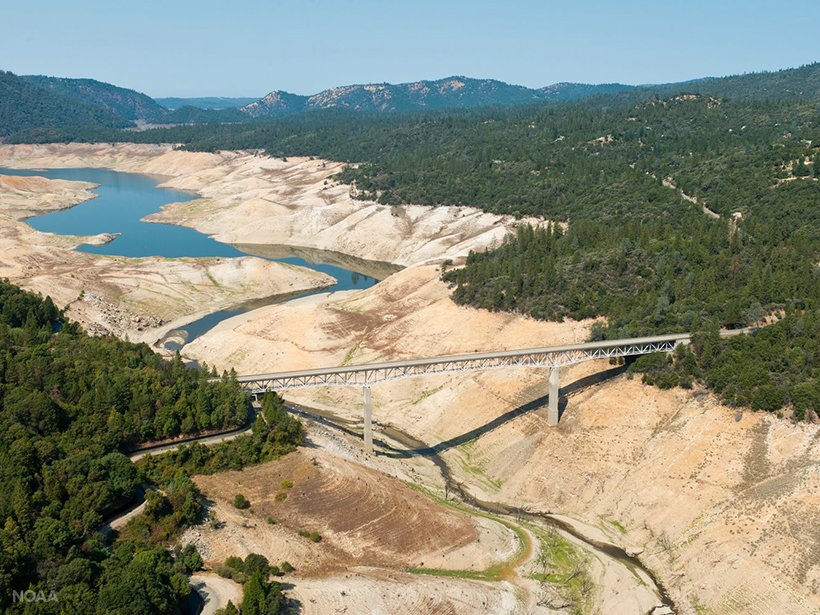California’s extreme drought has exacerbated tensions over water resources in the state. To address this, California’s 2014 Sustainable Groundwater Management Act (SGMA) requires local agencies to set basin-wide rehabilitation goals and design plans to enact them, with the intention of bringing groundwater systems into balance by 2050.
A conference in April at the University of California, Davis, brought together climate and water scientists, policy makers, agency officials, representatives from community and environmental nongovernmental organizations, and farmers. Speakers and panelists explored the future of water resources management in the context of SGMA and a changing climate.
At the meeting, climate and water scientists described the uncertain state of California water resources. Since 2012, California’s climate has tended toward more extreme levels of temperature and precipitation. Despite the uncertainty inherent in long-term predictions, this trend supports the idea that drought and warming are the “new normal.”
Climate change increases uncertainty in baseline values for water resources planning.
Even the 2016 record El Niño did not provide California with the exceptionally wet year that some hoped would replenish reservoirs. Conference participants concluded that climate change increases uncertainty in baseline values for water resources planning, which complicates efforts to implement policies like those laid out in SGMA.
Policy and social scientists pointed to the need for a clear definition of water rights if SGMA is to be successful. California does not regulate groundwater with permits but does subject groundwater pumping to the “reasonable use” doctrine and, in several basins, to court decrees adjudicating groundwater rights.
Political science professor Bill Blomquist (Indiana University) said that SGMA’s effectiveness will be limited without changes to existing water rights laws. In his talk and during later discussions, he asserted that SGMA would not have the authority or ability to define groundwater rights. Therefore, groundwater sustainability plans will likely be unstable because if groundwater sustainability agencies introduce changes in the strategy they select, other actors will change their strategy in response.
Many participants agreed that tensions over water rights will likely increase.
During the conference, speakers also addressed the roles of key factors affecting water sustainability. These include the role of agriculture in depleting and replenishing groundwater; the effect of the local environment, much of which depends on groundwater; and the needs of disadvantaged communities whose lives and livelihoods are disrupted when groundwater levels drop.
Many participants agreed that tensions over water rights will likely increase, especially in severely overdrafted basins, where sinking groundwater levels can only be overcome with reduced pumping. These tensions could precipitate a breakdown of coalitions in groundwater agencies and equilibrium solutions in sustainability plans.

One panel discussion featured farmers, who demonstrated a very clear understanding of the issues and processes involved. For instance, they understood that although most of California’s groundwater overdraft stems from irrigation pumping, inefficient irrigation with surface water allows water to percolate through soil and thus recharge aquifers.
Discussions among agricultural water managers and farmers revealed a growing understanding of finite resources. The farmers’ previous resistance to measurement and monitoring of groundwater pumping has given way to a desire for better reliability of resources.
Acknowledgments
Trainees in the Climate Change, Water, and Society Integrative Graduate Education Research Traineeship (National Science Foundation, Division of Graduate Education 1069333) organized the conference and contributed to this article with support from IGERT faculty.
—Ellie White, Elizabeth E. McClenny, and Marielle C. Pinheiro, University of California, Davis; email: [email protected]
Citation:
White, E.,McClenny, E. E., and Pinheiro, M. C. (2016), Climate change, groundwater management, and California’s future, Eos, 97, https://doi.org/10.1029/2016EO060037. Published on 30 September 2016.
Text © 2016. The authors. CC BY-NC-ND 3.0
Except where otherwise noted, images are subject to copyright. Any reuse without express permission from the copyright owner is prohibited.

